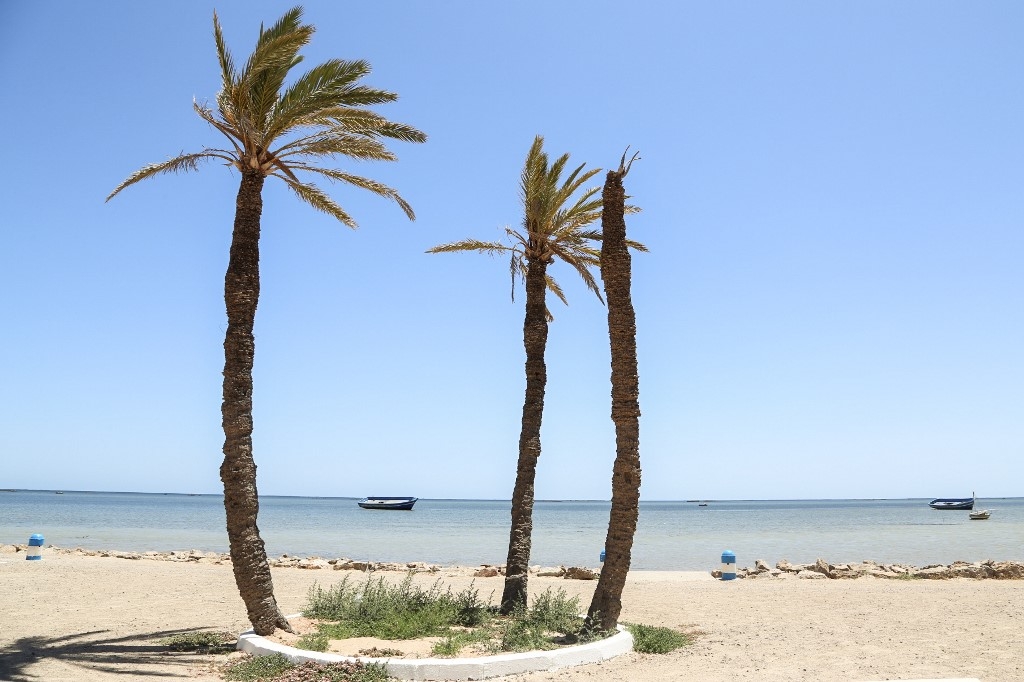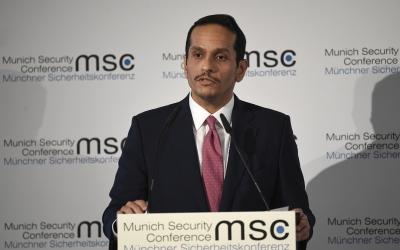Arabic press review: Tunisian migrants reach Italy despite coronavirus lockdown

Coronavirus fails to impede migrant crossings
Irregular migration from Tunisia to Italy via the Mediterranean sea is continuing despite coronavirus fears, a lockdown and the holy month of Ramadan, according to London based newspaper Al-Araby al-Jadid.
The paper says that "191 Tunisian irregular immigrants have breached the sea border last Friday and reached Italy's shores.
"Another 37 migrants left from Tunisia to Europe last month, and they have arrived in Italy," according to Ramadan ben Omar, a media spokesperson at the Tunisian Forum for Social and Economic Rights. Nearly 80 percent of them crossed from the southeastern coastal city of Sfax, he pointed out.
"Tunisian security forces have recently succeeded to abort more than 64 illegal trips to Europe through the sea," he added.
New MEE newsletter: Jerusalem Dispatch
Sign up to get the latest insights and analysis on Israel-Palestine, alongside Turkey Unpacked and other MEE newsletters
According to the sources, there are “organised networks” trying to "exploit the current situation to traffic more people while authorities are busy" with coronavirus and the lockdown.
Hassan Mouri, a sociologist, told the paper that the decision by Tunisian youth to expose themselves to grave risks at a the time of a pandemic reflects "weak family, social and religious drives, and their growing despair".
Kuwaiti minister visited Qatar for blockade talks
Senior Arab diplomatic sources revealed that Kuwait’s foreign minister, Ahmed Nasser al-Sabah, arrived in Doha on Sunday for a visit that lasted hours, in a new attempt to resolve the ongoing Gulf crisis, according to Arabi21.
The visit reportedly comes within the framework of the Kuwaiti initiative to bring Gulf states closer together, and the efforts of Kuwait's emir to solve the Gulf crisis that resulted from a blockade imposed by Saudi Arabia, the United Arab Emirates and Bahrain on Qatar in 2017.
It also occurs amid news of increasing US pressure on Riyadh and Abu Dhabi to lift the blockade and to take steps towards Gulf reconciliation, according to the news website.
A British expert in Gulf affairs claimed that Saudi Arabia is going through an “unprecedented dilemma” because of its deteriorating economic situation, caused by the drop in oil prices, its involvement in the war in Yemen, and its successive internal crises, making Riyadh see the US pressure as an opportunity to solve the problem with Qatar.
The expert, who preferred to remain anonymous, added that "the dilemma that Saudi Arabia is experiencing is prompting it to solve all its regional problems, and not only the problem of the blockade on Qatar."
Separately, Arabi21 learned that Saudi Crown Prince Mohammad Bin Salman asked the new Iraqi Prime Minister Mustafa Al-Kadhimi for Iraqi mediation to ease the tensions between Saudi Arabia and Iran in a phone call on Friday, after Kadhimi received parliament's confidence as the new prime minister.
Unemployment crisis awaits Gulf countries
Migrant workers in the Gulf may be the most affected by the coronavirus crisis, but this does not mean that Gulf citizens are immune to the consequences of the pandemic, which hit most areas of the economy, according to The New Khalij website.
Despite the support packages from governments of the Gulf Cooperation Countries (GCC), unemployment rates among the citizens of the six countries - Saudi Arabia, Kuwait, United Arab Emirates, Oman, Bahrain, Qatar - are heading upwards, the report said.
The worldwide spread of the virus has forced Gulf states to ban travel and tourism, suspend flights, impose curfews, cancel international exhibitions and tournaments, prevent gatherings, and close huge malls.
Following the crisis, layoffs have increased, new appointments were halted, wages have been reduced, and many companies were forced to give their employees unpaid compulsory leave and discontinue mega projects. These policies are expected to increase the number of unemployed people in the region, said The New Khalij.
"As the oil prices collapse, the employment crisis will worsen in the Gulf, with startups and small companies affected, and large multi-branch companies affected too; and this will affect their branches in the Gulf states," the report said.
* Arabic press review is a digest of reports that are not independently verified as accurate by Middle East Eye
Middle East Eye delivers independent and unrivalled coverage and analysis of the Middle East, North Africa and beyond. To learn more about republishing this content and the associated fees, please fill out this form. More about MEE can be found here.





